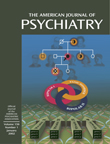The Antidepressant Survival Program: How to Beat the Side Effects and Enhance the Benefits of Your Medication
The author, a clinical psychopharmacologist and frequent lecturer, has written this book principally for members of the general public being treated for depressive disorders but with a recommendation that it be given to their physicians to read as well. For treating physicians, some brief sections and an appendix with scholarly references are included. Stating that 30% to 80% of patients who are taking selective serotonin reuptake inhibitors are “significantly impaired in their ability to function in their jobs or relationships,” the author presents his “Antidepressant Survival Program” for maximizing antidepressant response while minimizing adverse effects (sleep disturbance, fatigue, weight gain, and sexual dysfunction). The Antidepressant Survival Program is a group of specific recommendations concerning diet, exercise, stress reduction, play, and spirituality; there are also suggestions for possible food allergies and detailed laboratory testing for nutritional, endocrinological, and gastrointestinal deficiencies or imbalances. Dietary recommendations include avoiding the “toxic foods,” alcohol, caffeine, chocolate, sugar, and refined flour and keeping intake of simple carbohydrates low and protein adequate to prevent hypoglycemia and overeating.
The recommendations for exercise, stress relief, play, and spirituality are sensible and pragmatic. However, I feel meditation is discussed too briefly. The author, somewhat off the mark, asserts that Buddha’s first Noble Truth is that “everything is in a state of continual change.” The four Noble Truths were originally offered in a form that a physician might follow (diagnosis, cause, possibility of remedy, and treatment plan). The first Noble Truth is that life is dukkha (Pali), often translated as “suffering” but more accurately meaning that although one may experience pleasures, life is nonetheless characterized by a sense of unsatisfactoriness, significantly related to impermanence.
The text begins simply but leads into more sophisticated discussions. Most information appears accurate, although some assertions of frequently missed biological imbalances and the evidence-based value of some treatment recommendations are beyond my knowledge. For example, the author states, “At least 80 percent of my patients have abnormal functioning of the adrenal system and about 30 percent have disturbances in the thyroid system.” He also says, “Nine out of ten of my patients have a deficiency in at least one of these trace minerals.” The author has treated more than 300 patients with his program and says that “80 to 90 percent [of those] who faithfully follow the program achieve the desired result.” This is gratifying, but not noted are how many could or would not faithfully follow either his initial 5-day program or his full program, and it would seem that controlled trials should be attempted and reported.
This book is generously laced with encouragement, illustrative case examples, and strong predictions of likely benefit, which might help motivate and offer hope to those who are not fully recovered from depression. I particularly liked the chapter titled “Forging a Relationship for Healing With Your Doctor.” Despite reservations, I came to like this inspired effort and feel that one would do well at least to be acquainted with its contents, since our patients may soon be bringing in a copy.



